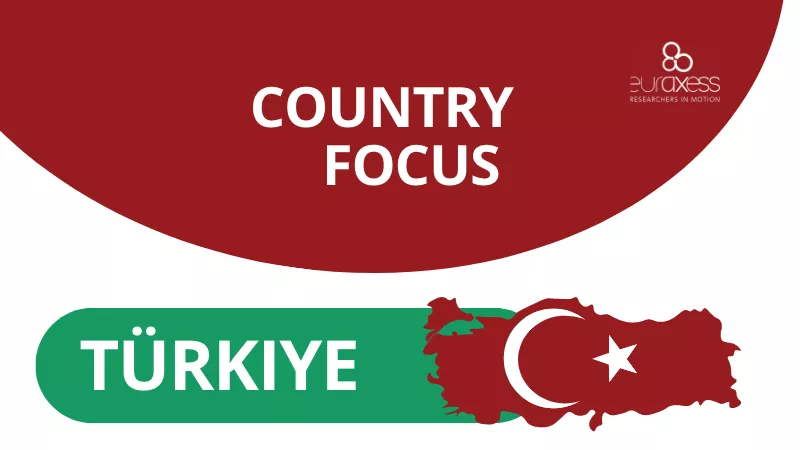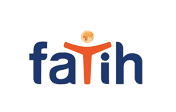EURAXESS Country in Focus: Türkiye

SOURCE: https://euraxess.ec.europa.eu/worldwide/north-america/news/country-profile-turkiye
EURAXESS Country in Focus: Türkiye
EURAXESS ? Researchers in Motion is an initiative of the European Research Area (ERA) that addresses barriers to the mobility of researchers and seeks to enhance their career development. This pan-European effort is currently supported by 43 countries, of which we will profile Türkiye in this quarterly e-newsletter.
National Research Landscape
Türkiye is a dynamic ecosystem characterised by a diverse array of actors and a strong emphasis on technological innovation. The national landscape is shaped by public research institutions, universities, and private-sector companies, all contributing to the country's robust research and development (R&D) activities. The Turkish government plays a pivotal role in fostering this environment, providing extensive funding for research, development, and innovation (RDI) projects in line with national targets and priorities.
As a country at the crossroads of Europe and Asia, Türkiye hosts 208 universities, both public and private, which are home to a large number of researchers, including an increasingly international researcher community. In 2022, a total of 221,811 individuals worked as full-time equivalent (FTE) R&D personnel. Looking at the distribution by sector in 2022, 61.3% of this total were in financial and non-financial companies, 34.2% in higher education, and 4.5% in the general government sector, including non-profit organisations.
The Turkish R&D landscape is further enriched by various public research organisations, technology parks, and private-sector R&D centres. Notably, TÜBİTAK, the Scientific and Technological Research Council of Türkiye, plays a critical role in shaping and funding the national research agenda. Several other sector-specific research institutes and centres of excellence also contribute significantly to the Turkish R&D ecosystem.
The country has made a steadfast commitment to enhancing its research capabilities, with consistent growth in R&D spending as a percentage of GDP (GERD) in recent years, signalling Türkiye's strategic focus on bolstering innovative capacity.
The government's proactive approach to funding R&D projects ? fostering innovation and creating an attractive environment for research ? is clear evidence of its determination to strengthen Türkiye's position as a global player in research and innovation. Evidence of this can be seen in the total patents granted to Turkish researchers, which reached 10,335 in 2022 ? 6,928 foreign patents and 3,407domestic patents.
-
STI Framework
TÜBİTAK funds research projects carried out in universities and other public and private organisations, supporting researchers and students through scholarships, grants and fellowships. Other key players in research funding include the Turkish Energy, Nuclear and Mineral Research Agency, the Ministry of Health, the Ministry of Agriculture and Forestry, the Ministry of Transport and Infrastructure, and the Council of Higher Education, all of which provide funds for research related to their respective fields of action. The government's support for the public research system is not only financial but also strategic. The high-level advisory policy group affiliated to the President in science, technology, and innovation (STI) is called the Science, Technology and Innovation Policy Council (STIPC). Under the auspices of STIPC, technology roadmaps have been prepared (see later for details).
-
Academic System
Türkiye's academic system is vibrant and diverse, with 208 universities spread across the country. These range from large, research-intensive institutions to smaller, specialised ones, and include both public and private providers. Each plays a unique role in the broader research and education ecosystem. Turkish universities cover a wide range of academic disciplines, contributing significantly to the country's R&D outputs. Furthermore, 23 of these institutions have been designated as 'research universities', highlighting their significant contribution to academic disciplines.
These universities host a considerable number of researchers, including academics and postgraduate students engaged in research. Türkiye's commitment to becoming an international hub for research and innovation is demonstrated by the growing number of foreign researchers in its university system.
The presence of foreign researchers not only contributes to the diversity of research perspectives but also helps strengthen international research collaborations. Universities and their research outputs are critical in driving innovation and contributing to Türkiye's global standing in research.
To date, nine universities from Türkiye (Boğaziçi University, Dokuz Eylül University, Hacettepe University, İzmir Institute of Technology, Koç University, Middle East Technical University, Nevşehir Hacı Bektaş Veli University, Yaşar University, Yıldız Technical University) have informed the European Commission that they endorse the 40 principles of the European Charter for Researchers and the Code of Conduct for the Recruitment of Researchers. Three of these universities (Middle East Technical University, İzmir Institute of Technology and Koç University) have been awarded the HR Excellence in Research status, allowing them to display the associated logo.
-
Research priorities
Türkiye's research priorities are diverse and closely aligned with the country's strategic goals for socio-economic development. The 11th Development Plan of Türkiye outlines the nation's research priorities and critical technologies. The main objective is to enhance the ability to develop and adapt technology in critical areas that are expected to generate high value-added in the future, ensuring technological transformation and increasing competitiveness in priority sectors.
To achieve this, the Science, Technology and Innovation Policies Board (BTYPK) of the Turkish Presidency, in partnership with the Ministry of Industry and Technology and with the technical assistance of TÜBİTAK, developed a series of technology roadmaps in areas such as Artificial Intelligence, Advanced Materials, Big Data and Cloud Computing, Engine Technologies, Cybersecurity, and Biotechnological Drugs. These technology sectors were chosen based on their high potential impact, as further identified in the BTYPK Technology Prioritisation Study, and the 2023 Industry and Technology Strategy.
The Development Plan also includes measures to increase human resource capacity in these areas, strengthen research infrastructures, and improve the capacity of the private sector in critical technologies. Moreover, it outlines priority sectors including the chemical industry, pharmaceuticals and medical devices, electronics, machinery and electrical equipment, automotive, rail system vehicles, and other manufacturing industries such as textiles-clothing-leatherwear, non-metallic mineral products industry, basic metal industry, ship-building industry, and the furniture industry.
Activities have been ongoing since 2021 to determine RDI strategies for the European Green Deal and climate change adaptation, in collaboration with relevant Turkish ministries. Türkiye announced its 2053 Net Zero Emission Target in September 2021, marking a significant step towards green transformation and growth. The Ministry of Industry and Technology and TÜBİTAK are working on a Green Growth Technology Roadmap. This initiative aims to design R&D, innovation, and investment projects to help Turkish private-sector organisations adapt to green growth. Upon completion of the roadmap, additional topics will be added for the iron-steel, aluminium, cement, fertiliser, chemical, and plastic sectors.
In 2022, the Ministry of Environment, Urbanisation and Climate Change organised a Climate Council. Under TÜBİTAK's coordination, efforts were made to develop innovative solutions in five main areas: Climate Change, Environment and Biodiversity; Clean and Circular Economy; Clean Accessible and Secure Energy Supply; Green and Sustainable Agriculture; and Sustainable Smart Transportation. With an interdisciplinary approach, 33 priority RDI topics were identified, which are among TÜBİTAK's priorities for 2022-2023. These topics include ground-breaking technologies that will increase efficiency through energy efficiency and the use of green technologies in production processes.
Moreover, some strategic topics include Earthquake Research, Chemical and Biological Defence, Production of Valuable Chemicals from Plant Sources, Monitoring of National Biological Diversity, Biomedical Equipment Technologies, and Epidemiological Studies.
Special Features of R&D Strategy
- Main STI Programmes
Türkiye's R&D Strategy and main STI programmes are characterised by a number of key policy initiatives. The 2023 Industry and Technology Strategy is a significant roadmap to transform Türkiye into a country that delivers high-tech added value in an increasingly digital world.
The strategy is composed of five main components: High Technology and Innovation, Digital Transformation and Industrial Leap, Entrepreneurship, Human Capital, and Infrastructure.
The National Artificial Intelligence Strategy is another crucial initiative that guides the country's efforts in the field of AI, with the National Artificial Intelligence Steering Committee overseeing its implementation. Türkiye's commitment to digital transformation is also evident in its association with the Digital Europe Programme and the development of the Digital Government Strategy.
READ MORE:https://euraxess.ec.europa.eu/worldwide/north-america/news/country-profile-turkiye




